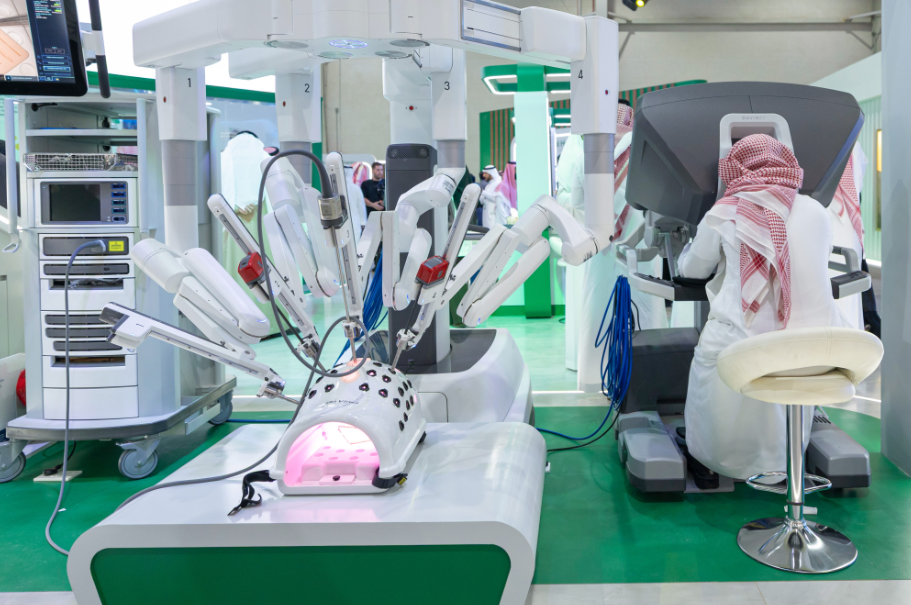Riyadh’s Ambition: The Path to Fully Robotic Medicine
- Caroline Haïat

- Oct 4
- 2 min read

The King Faisal Specialist Hospital & Research Centre (KFSHRC) is redefining global standards in robotic surgery, achieving groundbreaking milestones. Among them are the world’s first fully robotic liver transplant, led by Professor Dieter Broering, and the first heart transplant performed entirely by robot, conducted by Professor Feras Khaliel. These advances mark a decisive step toward a future where robotics will become the preferred approach for complex surgical procedures.
These pioneering operations demonstrate how robotics is transforming the most delicate surgeries into safer, less invasive procedures with improved outcomes. Where patients once faced weeks of hospitalization following a major transplant, they can now return home within days, experiencing fewer complications and a better quality of life.
Beyond these global achievements, KFSHRC continues to multiply regional firsts. The institution has performed the first robotic dissection of abdominal lymph nodes in the Middle East, as well as the first robot-assisted implantation of intracranial electrodes for stereo-electroencephalography (SEEG), enabling precise localization of epileptic foci before surgery. These milestones reflect the hospital’s commitment to integrating cutting-edge technologies to enhance surgical precision, reduce patient risks, and accelerate recovery times.
Today, KFSHRC aims to expand the use of robotic surgery across all its operating rooms, making it the standard approach for treating complex cases. This vision is already taking shape: in Riyadh, robotic kidney transplants increased by 75.2% in 2024, highlighting both the growing patient demand and the hospital’s capacity to deliver advanced care.
As a pioneer in adopting medical innovations, KFSHRC is not only transforming healthcare in Saudi Arabia but also sharing its expertise with the international medical community. Through investments in robotics, training, and multidisciplinary collaboration, the institution is preparing the next generation of surgeons while aligning with the Kingdom’s Vision 2030.
This excellence is reflected in international rankings: KFSHRC has been ranked first in the Middle East and North Africa, and 15th globally among the world’s top 250 academic medical centers for the second consecutive year. It has also been recognized as the most valuable healthcare brand in the Kingdom and the region according to the Brand Finance 2024 ranking.
In addition, Newsweek named it among the world’s top 250 hospitals and included it in its list of the World’s Best Smart Hospitals 2025. With its groundbreaking achievements and global recognition, the King Faisal Specialist Hospital & Research Centre stands out as a worldwide leader in robotic surgery and a key player in the future of medicine.
Caroline Haïat




Comments